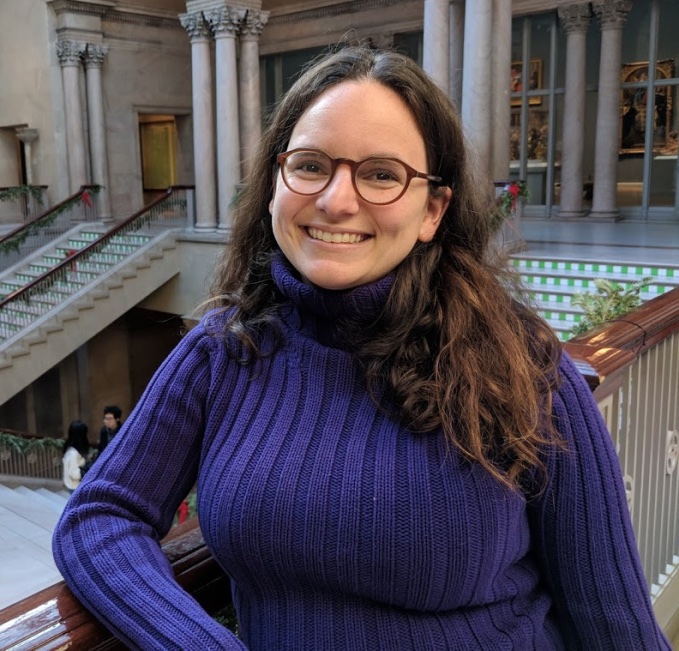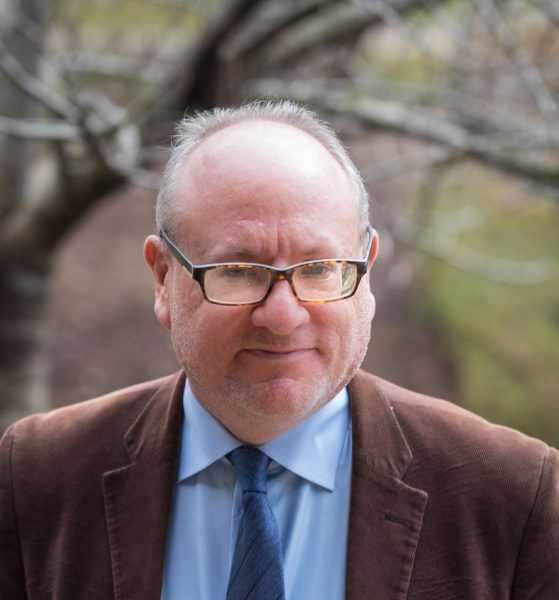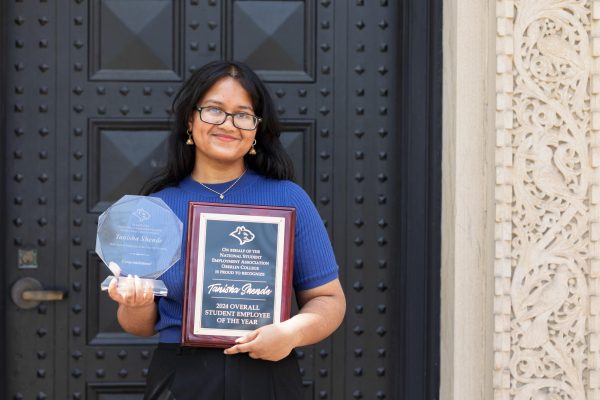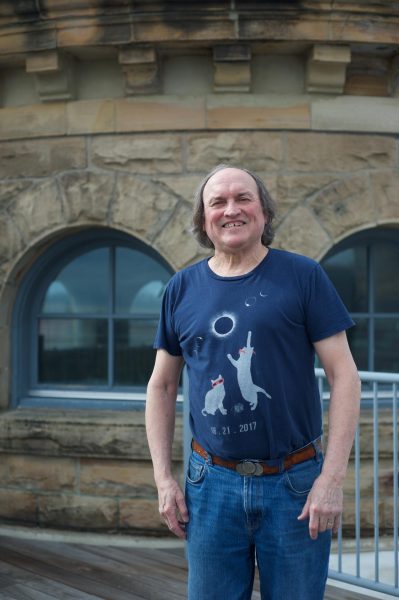Dr. Jessica Kirzane, Translator and Professor of Yiddish at the University of Chicago
Photo courtesy of Jessica Kirzane
Dr. Jessica Kirzane
Last Friday, Dr. Jessica Kirzane, a translator and professor of Yiddish at the University of Chicago and editor-in-chief of In geveb: A Journal of Yiddish Studies, delivered a talk titled “Translating Yiddish Feminism at Oberlin College.” Dr. Kirzane discussed her translations of Miriam Karpilove’s works Judith and Diary of A Lonely Girl and spoke about her own work in connection with feminism as she strives to recover the voices of women in Yiddish literature. This talk was part of a series of events commemorating 50 years of Jewish Studies at Oberlin.
This interview has been edited for length and clarity and was conducted prior to the lecture.
How did you arrive at studying the connection between Judaism and feminism?
I guess I’ve always been interested in feminism, and I was always interested in women’s writing and women’s voices. Even as a kid, I used to read this series called Childhood of Famous Americans, which had these biographies for seven-year-olds, and I only read the girls. So I’ve always been interested in women’s lives and biographies, but I didn’t connect that to my study of Yiddish in grad school, in what I was doing. Looking back on it, I think it’s because I wasn’t presented with very many women writers, and I understood that there was an assumption that there weren’t a lot of women writing in Yiddish among some of my professors and the scholarship. I sort of assumed that was what existed in the world.
Then I was researching a footnote for my dissertation, and one of my advisors suggested I should have a robust footnote about the idea of “free love” — an ideology that was espoused by radical leftists saying that love shouldn’t be bound by institutions like religion or government. I didn’t know very much about it, so I just typed the term into the Yiddish Book Center, and Diary of A Lonely Girl popped up as the second hit. I started reading it, and I was kind of surprised and delighted because it was something I had never thought existed. It sounded a lot like me. It was funny and about a woman’s life, so I started translating it. I started at a very lucky moment when there was this slowly growing momentum around publishing women writers, and I’ve sort of become part of this world of Yiddish translators who are working specifically on women who wrote in Yiddish. In the past five years, there have been multiple volumes that have come out all at once, so it feels like we’re in this watershed moment where it’s impossible to have a syllabus on Yiddish literature in America without including a woman.
As someone who works closely with students, translating Yiddish literature — specifically works written by women — what do you find is one important piece of knowledge to approach this topic with?
When people think about translators, they think that you take something that’s already famous and already has an audience and you bring it to new audiences, or something where there is already curiosity — but you can create that curiosity. I guess the other thing that I try to teach my students about translation is that you have to keep your English language audience in mind. You want to be respectful to the Yiddish, but I think that your primary loyalty has to be to the comfort of your English language audience — making sure that the English is fluid, comfortable for people to read, and doesn’t feel stilted or like it’s pulling them back into Yiddish. Then it becomes hard work, and I don’t think that Miriam Karpilove was hard work to read in her own Yiddish — she should feel as much fun in English as she did in Yiddish.
How do you maintain a balance between preserving the original work in Yiddish and bringing that same original life to the work in English in connection with your focus on feminism?
In addition to translating the individual words, you also want to translate the mood that you get from the piece or the heart of the piece. To do that, I think you have to be a good writer in English. I sometimes say to people that I like translating because you get to do all of the fun parts of writing without having to make up the story — which is the thing I find hard to do. You get to think about words and phrases, how to make things sound right, and get into the nuts and bolts of writing. Then I get to celebrate this other person and her wonderful work. I would never praise myself the way I praise Miriam Karpilove, and this gives me the opportunity to really promote something without feeling uncomfortable in doing that. It’s a collaborative thing, and maybe this is a feminist thing; it’s not just about me as an individual, but it’s my collaboration with Miriam Karpilove and all of these other women who are involved in translating women writers in this movement that we’re building. I get to be part of promoting all of that.
Is there anything you hope that the Oberlin community will take away from the work you’re sharing here?
In addition to translating, I am the editor-in-chief of an online journal called In geveb. It’s free and it’s online, so I hope that people who find this interesting will start reading that. It’s a great way to plug into the global Yiddish community. It would be a great next step for people.
Diary of A Lonely Girl in particular, I think, really resonates with college students. It’s about a single woman who is living away from her family and dates a series of awful men who are trying to pressure her to have sex with them. I think there’s something really powerful about knowing that has always happened, that it’s not a new phenomenon, and that this is a woman who is extremely strong in her self-conviction — she won’t be trampled on or put up with that behavior. I hope that students will feel similarly and learn about how to be strong in those kinds of situations.
Could you tell me a little bit about your background?
Well, let’s see. I grew up in New Jersey and in Virginia, and also a little bit in England — my family moved a lot. I went to college at the University of Virginia, and I got a B.A. in English Literature and in Jewish Studies. I was working on American Jewish fiction. While I was there, the summer after my Junior year, I got an internship at the Yiddish Book Center which is in Amherst, M.A., so I went there on a summer program thinking, “I’ll learn a little bit about Yiddish — sounds interesting, maybe it will help me with my learning about American Jewish literature.” I kind of fell in love with the community there and the passion people had for Yiddish, so I kept on taking Yiddish after that. I came back to my university, they happened to have intermediate Yiddish at the time, so I took that. Then I went to the Hebrew University of Jerusalem for a year, and I took Yiddish and Hebrew there. Then I went to grad school at Columbia where I got my Ph.D. in Yiddish Studies, and now I’m at the University of Chicago teaching Yiddish language.
What drew you to Oberlin College as a community for this talk?
I was invited by Shari Rabin — and I was really excited to get the invitation. This is the first time I’ve spoken in person about this book since March 2020. I was invited to speak in a class this morning, and I was in a room with people who had read the book before, and I’ve never had that happen before. It was really cool.










